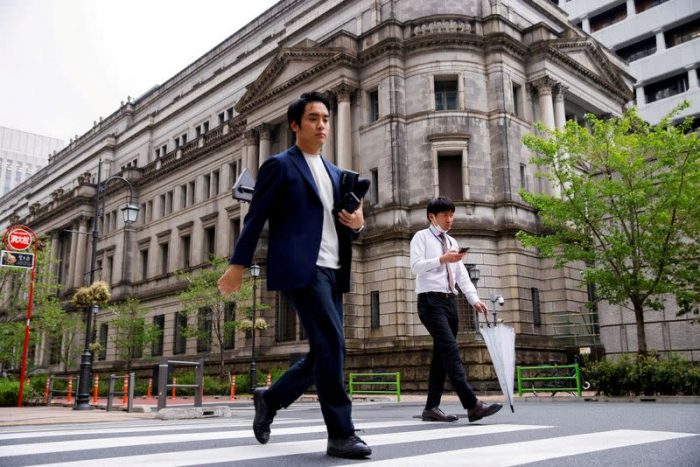Japan may be close to emerging from its 25-year battle with deflation, the government said on Tuesday.
The country could be at an inflection point as price and wage rises show signs of broadening, it said.
Optimism that the economy is nearing an end to a period of prolonged stagnation echoes similar views from the Bank of Japan (BOJ), which has said corporate price- and wage-setting behaviour is changing.
If confirmed, this could pave the way for phasing out the country’s massive fiscal and monetary support.
ALSO SEE: Toyota Stops Work at Japanese Plants Due to System Failure
The world’s third largest economy saw 6% annualised growth between April and June and a quarterly gain of 1.5%, which took gross domestic product (GDP) to a record high.
It was the fastest expansion since the final quarter of 2020 and followed a revised 3.7% expansion in January-March, but analysts warned the momentum may not be sustained. They did not foresee a vigorous recovery.
Moderate increase in service prices
“Japan has seen price and wage rises broaden since the spring of 2022. Such changes suggest the economy is reaching a turning point in its 25-year battle with deflation,” the government said in its annual economic white paper.
“We shouldn’t dismiss the fact a window of opportunity may be opening to exit deflation,” as inflation perks up and public perceptions about persistent price declines abate, it said.
The report stopped short of saying Japan has fully eradicated the risk of deflation returning, pointing to a “still moderate pace” of increase in services prices.
“In determining the trend of inflation, it’s important to look at services prices” as they reflect domestic demand and wages more vividly than goods prices, the report said.
In last year’s report, the government said inflation was modest except for a handful of food and energy-related goods.
Shifting priorities, concern over higher costs
The change in tone on deflation risks underscore the government’s shifting priorities, as rising commodity costs and a tightening job market push up inflation and heighten public worries over higher living expenses.
Japan’s core inflation hit a four-decade high of 4.2% in January and remained above the BOJ’s 2% target for 16 straight months in July, as more firms pass on higher raw material costs.
Companies this year offered their highest pay in three decades, heightening the case for a retreat from decades of ultra-loose monetary policy.
But the government has refrained from officially declaring an end to deflation, arguing that doing so requires not just underlying price rises but clear signs that Japan won’t return to periods of price falls.
“We need to eradicate the sticky deflationary mindset besetting households and companies,” the report said, adding the government must work closely with the BOJ to achieve sustained wage growth.
Since declaring Japan in a state of deflation in 2001, the government has made ending price falls among its top policy priorities.
The focus has led to years of big fiscal spending to prop up the economy, and kept pressure on the central bank to maintain ultra-loose monetary policy.
- Reuters with additional editing by Jim Pollard
ALSO SEE:
Japan GDP Grows At Fastest Pace in Two Years; Experts Sceptical
Japan Sees Big Blow From Hong Kong Ban on Most of its Seafood
EU to Beef Up Japan Ties on Chips, AI to ‘De-Risk’ From China
Micron to Spend $3.7bn to Bring EUV Chipmaking Tech to Japan
Japan Gives Toyota $841m to Drive Domestic EV Battery Output
























